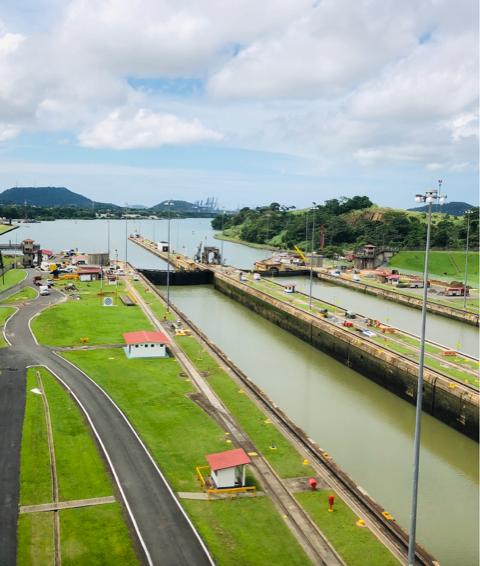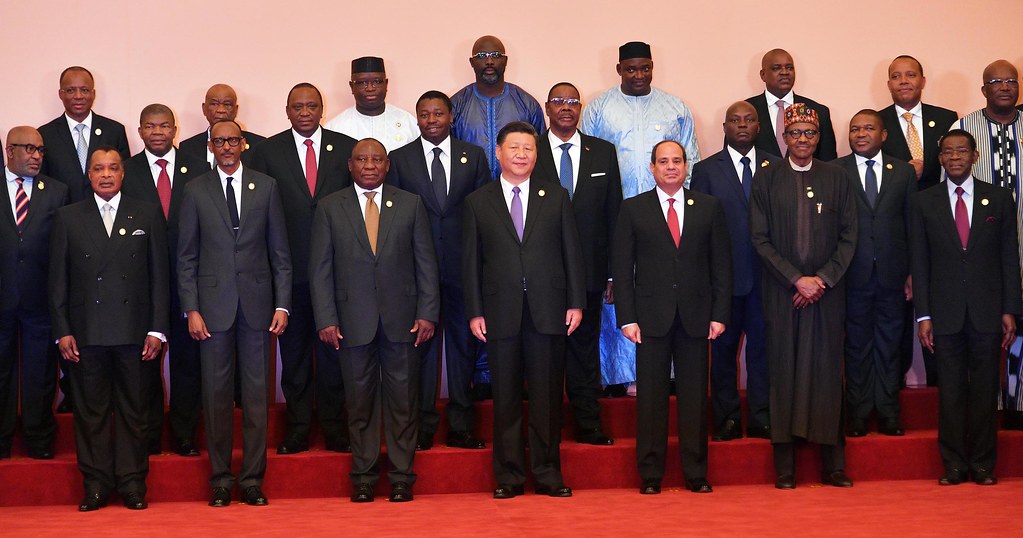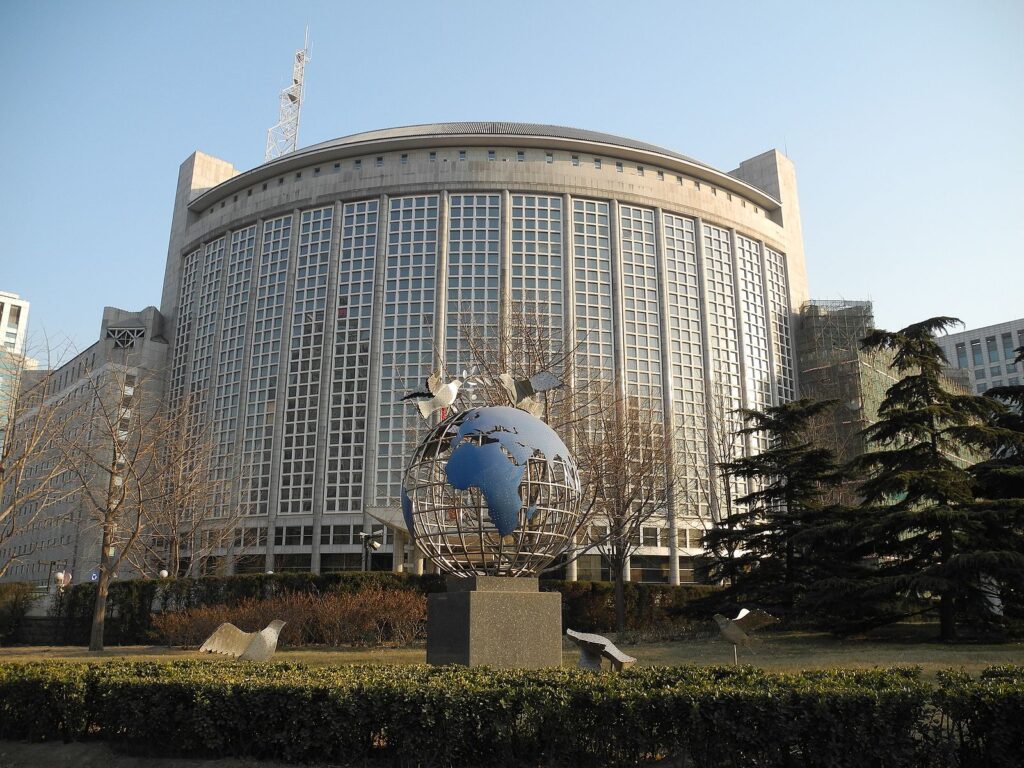A new paper draft by Larry Catá Backer

In the United States at least, there has been an increasing worry about the state of US relations (economic and political) with Latin American states. Increasingly that is measured by the extent of Chinese development of its own political and economic relations with Latin American and Caribbean states. Europeans, more than most, worry about this shift in the sources of overseas investments from the perspective of their now decades long objectives to embed human rights more directly in economic activities and political life.
US military leaders have also expressed fears about Beijing’s influence on Mexico’s communications industry, where 80 percent of telecoms are provided by Chinese companies, according to General Glen VanHerck, commander of both the US Northern Command and the North American Aerospace Defense Command. China is also extending its reach into the ‘Lithium Triangle’ which spans Argentina, Bolivia and Chile: The Chinese battery company Catl recently struck a deal worth more than $1 billion to develop Bolivia’s lithium reserves. Some analysts have speculated this resource-grab constitutes a ‘lithium monopoly in the making’. The benefits gained from these investments are coupled with the willingness of Latin American countries to accept loans worth tens of billions of dollars from China.
At the center of Chinese overseas investment are their state-owned and controlled enterprises. The Chinese state-owned enterprise (CSOE) presents an anomaly in the operation of the well-ordered construction of a self-referencing and closed system of liberal democratic internationalism, especially as that system touches on business responsibilities under national and international human rights and environmental law and markets driven norms. The anomaly is sourced in the increasingly distinct and autonomous framework principles within which it is possible to develop conduct-based systems respectful of both human and environmental rights which are emerging in between liberal democratic and Marxist-Leninist systems.
This essay considers the forms and manifestations of these disjunctions where CSOEs are used as vehicles for the projection of Chinese economic activity beyond its borders. The essay first situates the CSOE within the political ideology of its home state. These CSOEs are both creatures of the political-economic system from which they are constituted and economic actors seeking to maximize return for investment in a risk reducing environment. CSOEs are instruments of state power and its political-economic objectives, as well as value maximizing market participants. They seek to avoid risk and maximize value-but their calculation of risk and value are a function of the normative system from which they are constituted. That, in turn, affects their engagement with human rights and the sustainability impacts of their operations.
To better understand the CSOE especially as they operate in host states is especially necessary as global and national systems for compliance and accountability are refined, and as national security regimes increasingly constrain the extent and form of inbound public investment. To that end the essay focuses on the formal structures for CSOE supervision by state organs that operationalize the guiding ideology through which they are conceived and operated. This provides the basis for a deeper consideration of the way that the projection of CSOEs abroad is structured within a conceptual cage of policy objectives: specifically, emerging conceptions of socialist human rights, including environmental rights and obligations, and an operational framework in the form of the Chinese Belt & Road Initiative. It is only in the complex interplay of these layers of law, principle, regulation, and guidance described above, that one can begin to see the outline of the normative cage within which human rights can be understood and practiced by CSOEs.
Nonetheless, at its core, the study is about risk- its ideology and the way it is expressed through governance expectations and principles. One speaks here about legal risk (to align the discussion with the 1st Pillar of the UN Guiding Principles), but also of business risk (aligning the markets driven, private law structures of the UNGP 2nd Pillar). More importantly, the sort of risk that one encounters here, in comparing the liberal democratic and Marxist-Leninist models of human rights and sustainability, is intimately tied to the principle of “prevent-mitigate-remedy”, and its administrative-compliance overlay. In a sense, when one speaks to human rights and sustainability, and especially climate change, one is using the qualitative language of rights to speak to the quantitative probabilities of risk of harm, and more importantly risk of irremediable harm. The function of those principles, then, framed through the prevent-mitigate-remedy principle is to provide a formula for valuing those risks, and for placing them within a hierarchy of risk tolerance. Increasingly in liberal democratic regimes, risk tolerance for strategies that do not privilege prevention (and then mitigation and last remedy) are reduced, or in some cases, risk aversion is implicitly or explicitly the result of the application of the “principles” analysis. That is fair enough and represents the culmination of conversation about value choices. Nonetheless, Marxist-Leninist systems approach risk, and risk tolerance, in a different way. That difference is in part a function of differences in the conceptualization of both human rights and sustainability as a function of development and collective prosperity. But it is also in part a reflection, effectively, of what might be preferences for mitigation-remediation (or otherwise exit if the costs of prevention exceed the anticipated vale of an activity), at least indifference as between the strategies as a function of expected value. That poses some challenges for any project that seeks global consensus on what had once been the unchallenged valuations and framework of liberal democracy.
Larry Catá Backer is a W. Richard and Mary Eshelman Faculty Scholar and Professor of Law and International Affairs. He does research in Legal Fundaments, Political Economy and International Relations. Currently working on “Next Generation Law”–data driven governance; the emergence of new global trade regimes (Belt and Road Initiative and America First); and the emergence of new theories of Leninist state organization as they may apply to non-Leninist institutions.


